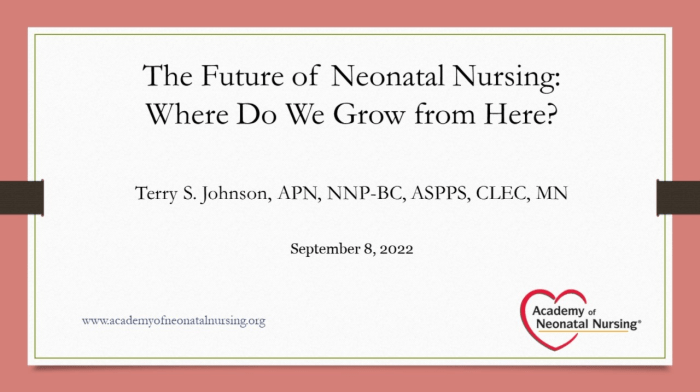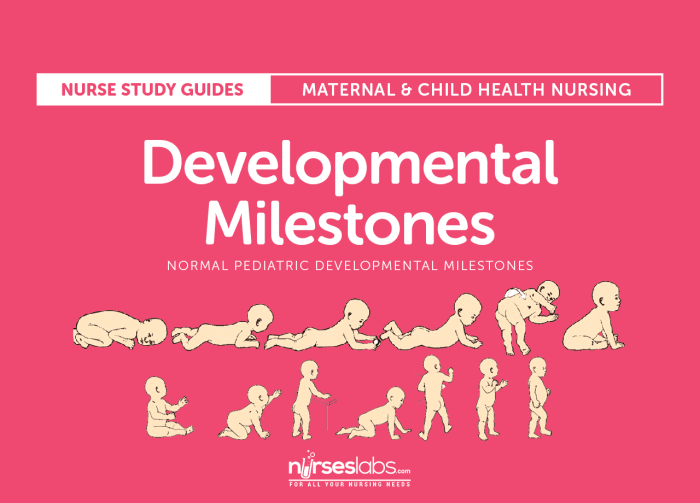Level up rn maternal newborn: embarking on a journey to improve maternal and newborn health outcomes. This comprehensive guide delves into the intricacies of maternal and newborn care, empowering nurses with evidence-based practices, innovative approaches, and a passion for advocacy.
Our exploration begins with the significance of monitoring maternal and newborn health indicators, unveiling the impact of health disparities on these vulnerable populations. We delve into the realm of evidence-based interventions, highlighting the crucial role of prenatal care, labor and delivery management, and postpartum care in promoting optimal well-being.
Maternal and Newborn Health Outcomes

Monitoring maternal and newborn health outcomes is crucial for understanding the health status of women and infants during pregnancy, childbirth, and the early postpartum period. By tracking key health indicators, we can assess the well-being of mothers and newborns, identify areas for improvement, and develop targeted interventions to address disparities in health outcomes.
Key Health Indicators
Several key health indicators are used to assess maternal and newborn well-being. These include:
- Maternal mortality rate: The number of women who die from pregnancy-related causes per 100,000 live births.
- Neonatal mortality rate: The number of babies who die within the first 28 days of life per 1,000 live births.
- Stillbirth rate: The number of babies who are born dead after 28 weeks of gestation per 1,000 total births.
- Preterm birth rate: The number of babies who are born before 37 weeks of gestation per 100 live births.
- Low birth weight: The number of babies who weigh less than 2,500 grams at birth per 100 live births.
Impact of Health Disparities
Health disparities are significant differences in health outcomes between different groups of people. These disparities can be based on factors such as race, ethnicity, socioeconomic status, and geographic location. Maternal and newborn health outcomes are no exception to this, with certain groups facing higher risks of adverse outcomes.
For example, in the United States, Black women are three times more likely to die from pregnancy-related causes than white women. Additionally, infants born to Black mothers have a higher risk of preterm birth and low birth weight.
Addressing health disparities is essential for improving the overall health and well-being of mothers and newborns. This can be done through a variety of strategies, including increasing access to quality healthcare, providing culturally competent care, and addressing the underlying social and economic factors that contribute to health disparities.
Evidence-Based Interventions for Maternal and Newborn Care

Prenatal care, labor and delivery management, and postpartum care are crucial components of maternal and newborn care. Evidence-based interventions in these areas have significantly improved health outcomes for both mothers and babies.
Prenatal Care
Prenatal care is vital for monitoring the health of the mother and fetus, identifying potential risks, and providing early intervention. It includes regular check-ups, nutritional counseling, and education on healthy behaviors.
Labor and Delivery Management
Appropriate management of labor and delivery is essential for ensuring a safe and healthy birth. Evidence-based practices include:
- Monitoring fetal heart rate and uterine contractions
- Providing pain relief measures
- Avoiding unnecessary interventions, such as cesarean sections
- Active management of the third stage of labor
Postpartum Care
Postpartum care focuses on the recovery of the mother and the well-being of the newborn. Key interventions include:
- Monitoring vital signs and checking for signs of infection
- Providing breastfeeding support
- Encouraging skin-to-skin contact between mother and baby
- Addressing emotional and mental health needs
Access to Quality Healthcare Services
Access to quality healthcare services is fundamental for ensuring optimal maternal and newborn outcomes. This includes:
- Affordable and accessible prenatal, labor and delivery, and postpartum care
- Skilled healthcare providers
- Availability of essential medications and equipment
- Comprehensive health education and counseling
Health Promotion and Education

Promoting healthy behaviors among pregnant women and new mothers is essential for improving maternal and newborn health outcomes. Education plays a crucial role in enhancing health literacy, while community engagement and support foster a supportive environment for maternal and newborn well-being.
Strategies for Promoting Healthy Behaviors
- Provide accessible prenatal and postnatal care to address health concerns, provide guidance, and promote healthy behaviors.
- Offer nutrition counseling to ensure adequate intake of essential nutrients for both mother and baby.
- Encourage physical activity to maintain a healthy weight and improve overall well-being.
- Promote smoking cessation and reduce alcohol consumption to minimize risks to the mother and baby.
- Educate on safe sleep practices to prevent sudden infant death syndrome (SIDS).
Role of Education in Improving Maternal and Newborn Health Literacy
Health literacy is crucial for informed decision-making and adherence to recommended practices. Education empowers individuals to understand their health, make informed choices, and advocate for their well-being. By providing clear and accessible information on prenatal care, labor and delivery, and newborn care, education improves health outcomes and reduces disparities.
If you’re looking to level up your maternal-newborn nursing knowledge, don’t miss out on the invaluable resource that is Jarvis’s 9th Edition Test Bank . This comprehensive guide will help you ace your exams and solidify your understanding of the latest maternal-newborn care practices.
With its detailed explanations, practice questions, and up-to-date information, Jarvis’s Test Bank is the perfect companion for your level up rn maternal newborn journey.
Importance of Community Engagement and Support
Community engagement fosters a supportive environment for maternal and newborn health. Local health centers, support groups, and community outreach programs provide a platform for sharing information, accessing resources, and building a sense of community. This support system promotes healthy behaviors, reduces isolation, and improves overall well-being for both mothers and babies.
Innovative Approaches to Maternal and Newborn Care
In the pursuit of enhancing maternal and newborn care, innovative approaches and technologies have emerged, transforming the accessibility, efficiency, and quality of healthcare services. These advancements range from telemedicine to data analytics, offering promising solutions to address the challenges faced in this crucial domain.
Telemedicine, Level up rn maternal newborn
Telemedicine, the practice of providing healthcare services remotely through telecommunications, has revolutionized maternal and newborn care, particularly in underserved areas. It enables healthcare professionals to connect with patients in remote locations, offering consultations, diagnoses, and even remote monitoring.
- Benefits of telemedicine in maternal and newborn care:
- Increased access to healthcare services, especially in rural or remote areas.
- Improved continuity of care, allowing for regular check-ups and monitoring.
- Reduced travel costs and time for patients.
Mobile Health (mHealth)
Mobile health, or mHealth, leverages mobile devices and wireless technologies to deliver healthcare services. It has gained significant traction in maternal and newborn care, offering a range of applications:
- Pregnancy tracking apps:
- Provide expectant mothers with information, resources, and support throughout their pregnancy.
- mHealth apps for healthcare professionals:
- Enable healthcare providers to access patient records, monitor vital signs, and provide remote consultations.
Data Analytics and Machine Learning
Data analytics and machine learning techniques have immense potential in optimizing maternal and newborn care. By analyzing vast amounts of data, these technologies can identify patterns, predict risks, and personalize interventions.
- Applications of data analytics in maternal and newborn care:
- Early detection of high-risk pregnancies.
- Personalized care plans based on individual patient data.
- Identification of areas for quality improvement.
Policy and Advocacy for Maternal and Newborn Health
Policy advocacy is a crucial component in enhancing maternal and newborn health outcomes. It involves influencing policies and programs to promote the health and well-being of mothers and their newborns. By addressing disparities and implementing evidence-based interventions, policy advocacy can significantly improve maternal and newborn health.
Successful policy initiatives have been implemented worldwide to address maternal and newborn health disparities. For instance, the Every Newborn Action Plan (ENAP), launched in 2014, has been instrumental in reducing newborn mortality rates by providing essential interventions such as clean delivery, breastfeeding promotion, and access to essential medicines.
Role of Stakeholders
Stakeholders play a vital role in advocating for policies that support maternal and newborn health. Healthcare professionals, community leaders, policymakers, and organizations can collaborate to raise awareness, influence decision-making, and monitor policy implementation. Their collective efforts ensure that maternal and newborn health remains a priority in healthcare systems and public policies.
Expert Answers: Level Up Rn Maternal Newborn
What are key health indicators used to assess maternal and newborn well-being?
Indicators include maternal mortality ratio, neonatal mortality rate, and low birth weight.
How does access to quality healthcare services impact maternal and newborn outcomes?
Access to quality healthcare reduces maternal and newborn mortality and morbidity, improves birth outcomes, and promotes overall well-being.
What are innovative approaches to maternal and newborn care?
Innovative approaches include telemedicine, mobile health, data analytics, and machine learning, which enhance access, improve communication, and optimize care.